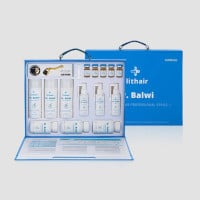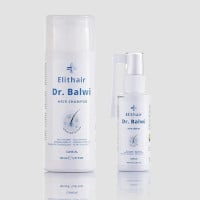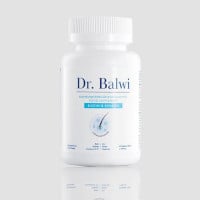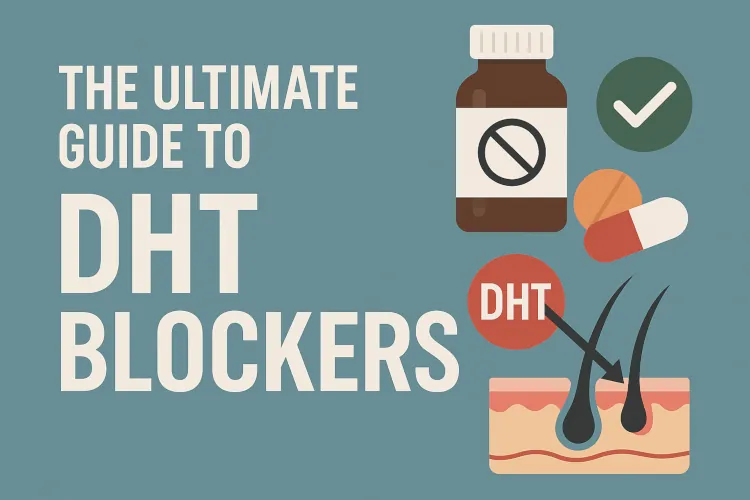
The Ultimate Guide to DHT Blockers
If you’ve been struggling with hair loss, chances are you’ve heard about DHT blockers. But what are DHT blockers, and how do they work? In this article we’ll be taking a look at how hormones affect hair health, how blockers work, who can benefit from them, and when to consider alternative treatments like hair transplants.
- What Is DHT and How Does It Affect Hair Growth?
- How Do DHT Blockers Work?
- Top Prescription DHT Blockers: Finasteride and Dutasteride
- Natural DHT Blockers: Foods and Supplements
- Potential Side Effects of DHT Blockers
- Who Are DHT Blockers For?
- How Long Does It Take DHT Blockers To Work?
- Alternatives to DHT Blockers for Hair Loss Treatment
What Is DHT and How Does It Affect Hair Growth?
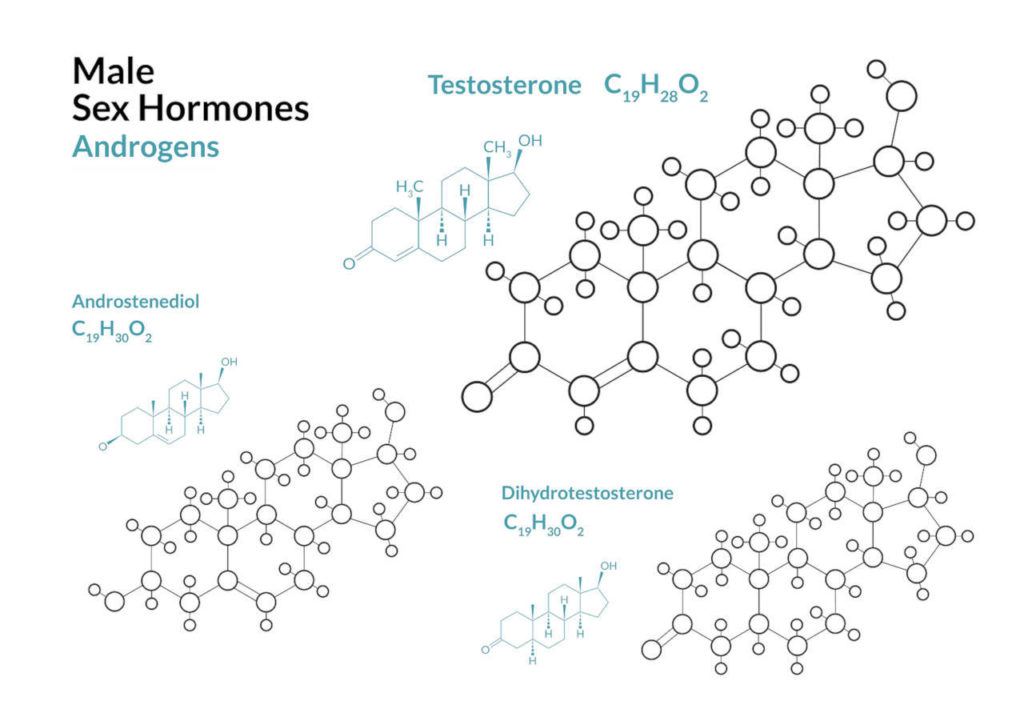
Dihydrotestosterone (DHT) is an androgen derived from the hormone testosterone. Testosterone is typically responsible for secondary sex characteristics in men like a deep voice, facial hair, or more muscle mass.
Testosterone is converted to DHT with the help of the enzyme 5-alpha reductase. This enzyme is stored in the oil glands of a hair follicle.
DHT binds to androgen receptors in hair follicles, causing them to shrink. As follicles become smaller, the growth phase shortens while the resting phase lengthens, leading to thinning and eventual hair loss. Some men are genetically more sensitive to DHT, which accelerates follicle miniaturisation. To prevent hair loss, DHT production or activity must be reduced.
How Do DHT Blockers Work?
DHT blockers are treatments (medicine, shampoos, and natural foods) that stop DHT attacking the hair follicles and making them shrink. In order to stop DHT from attacking hair follicles, DHT must be blocked. However, this blockage occurs without knowing the amount of testosterone in the body. A decrease in testosterone could lead to a hormone imbalance.
This negative effect can be avoided while still reducing DHT by inhibiting the function of 5-alpha reductase or by blocking DHT from binding to the androgen receptors.
Top Prescription DHT Blockers: Finasteride and Dutasteride
The two main types are blockers (preventing DHT from binding to 5-AR receptors) and inhibitors (reducing the production of DHT in your body). There are many different forms of DHT blockers such as prescription medicine, shampoos and conditioners and natural foods and supplements.
DHT blocker tablets are available on prescription but come with their own risks and potential side effects:
- Finasteride: an oral tablet prescribed to reduce the effect of male pattern baldness
- Dutasteride: an oral tablet prescribed for men to reduce hair loss
- Minoxidil (Regaine): tablet or lotion that can be used on the scalp.
- Biotin: taken orally or from foods such as egg yolks, nuts and whole grains
Natural DHT Blockers: Foods and Supplements
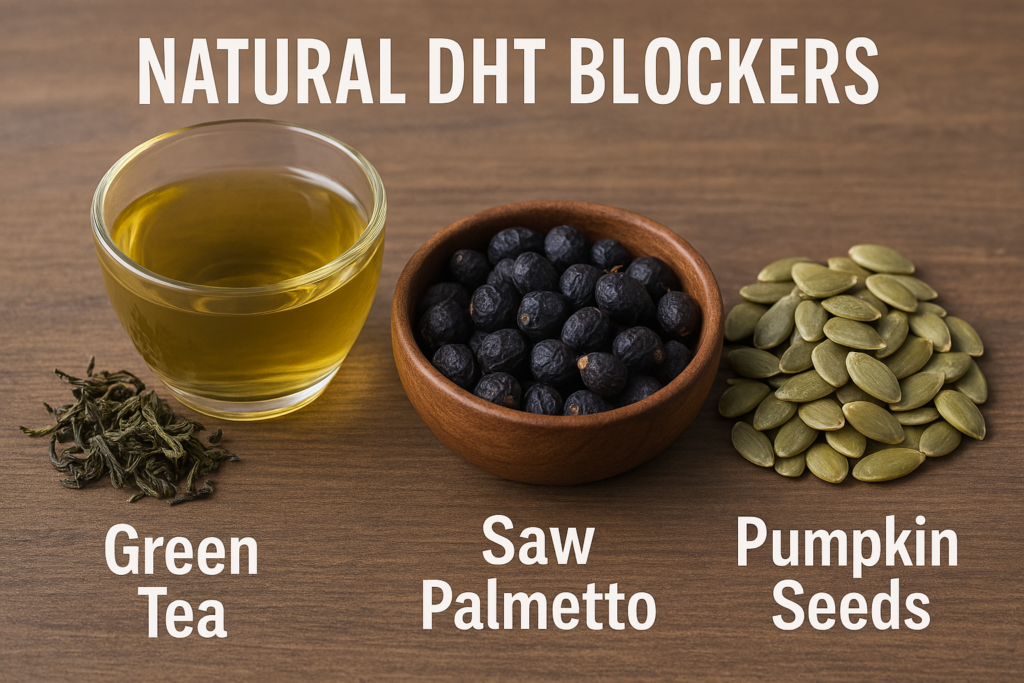
There are many ways to naturally reduce DHT, and while DHT hair loss cannot be completely avoided, the good news is that there are many foods, vitamins, and supplements that may help slow down the progression of hair loss in men. Here are three natural DHT blockers which have been linked to a reduction in hair loss:
- Saw palmetto: an extract derived from the berries of the saw palmetto palm tree (Serenoa repens). Research suggests saw palmetto may be able to inhibit the activity of 5-alpha reductase and can therefore function well as a DHT blocker food.
- Pumpkin Seed Oil: Like many oils, it has long been proven as a way to promote and maintain healthy hair growth. Research has shown that pumpkin seed oil can play a role in the decrease of DHT by inhibiting the action of 5-alpha reductase. It is also high in zinc. The body cannot produce this trace element on its own, so it must be supplied through food and/or supplements. Too high of a dose of zinc can be damaging, so it is advised to monitor intake carefully. Foods that contain zinc: oysters, shellfish, meats, baked beans, breakfast cereal.
- Green Tea: Studies have shown that the epigallocatechin gallate found in green tea can prevent DHT-mediated cell death, suggesting that green tea can be used as a natural DHT-blocker.
One substance that you might want to consider avoiding is caffeine. A study suggests that chronic caffeine intake could actually lead to an increase in DHT.
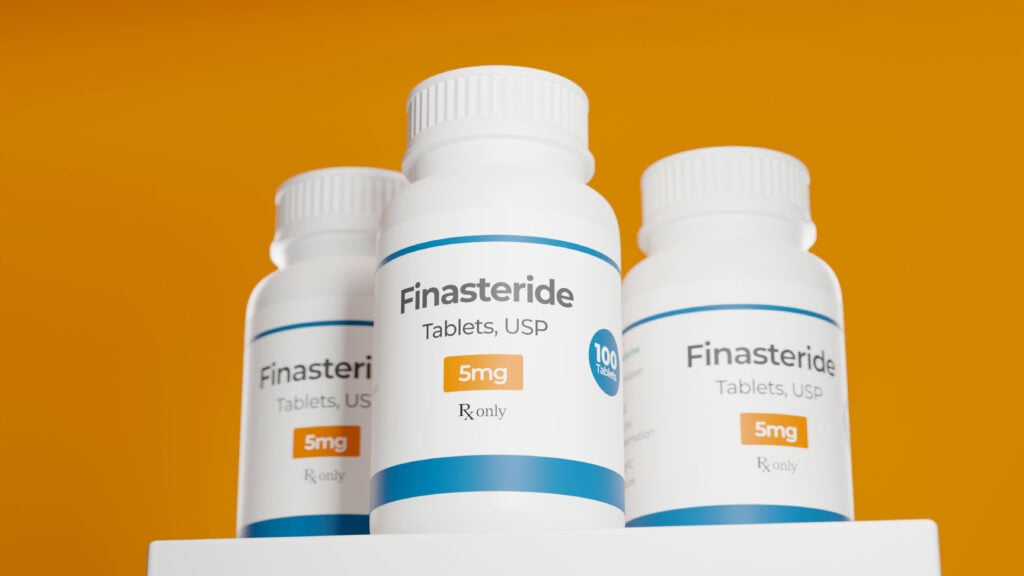
Potential Side Effects of DHT Blockers
There are some negative DHT blocker side effects to understand. While they are often considered the best DHT blocker solutions, there can be some more severe side effects, such as:
- Ejaculation problems
- Erectile dysfunction
- Decreased sex drive
- Tenderness or excess fat in the breast area
- Rash
Research suggests that DHT blockers can slow down hair loss while potentially promoting regrowth, so it may seem a very reasonable solution if you are faced with this type of alopecia. To lessen risks, any treatment for DHT hair loss should always be discussed with your healthcare provider.
However, the negative side effects of such treatment options shouldn’t be ignored. Additionally, once you stop using DHT blockers, your hair will start falling out again. Hair surgery is the better alternative if you are looking to treat male pattern baldness permanently.
Who Are DHT Blockers For?
DHT blockers are aimed at men looking for treatment for hair thinning and male pattern baldness. However, DHT blockers should not be used if you’re under 18 or over 65 years of age, or if you’re due a blood test for prostate-specific antigens, if you have high blood pressure, have any allergies to the ingredients, or if you have a scalp condition such as psoriasis.
For women, it is slightly more complicated and any woman seeking medication for hair loss should discuss her options with her doctor. A course of DHT-blockers always depends on your specific cause of hair loss, regardless of your gender. For women suffering from PCOS (Polycystic Ovarian Syndrome), drugs like Spironolactone may be prescribed. Spironolactone is often used as a DHT blocker for women.
How Long Does It Take DHT Blockers To Work?
There are many different forms of DHT blockers, but a treatment for hair loss such as Finasteride (Propecia) can take from three to six months before any effect is seen, even if taken daily.
Alternatives to DHT Blockers for Hair Loss Treatment
If you suffer from hair loss issues, there are alternatives to DHT blockers and the risks associated with them. Elithair has a team of medical advisors and a thorough 6 step process to help assess the best hair loss treatment for you and your wellbeing. If you’re considering a procedure abroad, our guide to hair transplants in Turkey explains how to prepare, what to expect, and how to choose a reputable clinic.
We also offer a range of products to assist in your hair restoration. Book your free consultation and hair analysis to find a permanent solution to your male pattern baldness.
FAQ
Can DHT blockers completely stop hair loss?
While DHT blockers can significantly reduce the rate of hair loss and, in some cases, encourage regrowth, they cannot guarantee complete prevention. The effectiveness depends on factors such as genetics, age, and how early treatment begins. For individuals with advanced hair thinning, a combination approach — such as pairing DHT blockers with a hair transplant — may offer better results.
Are DHT blockers safe for long-term use?
DHT blockers like Finasteride and Dutasteride are generally considered safe for long-term use under medical supervision. However, prolonged use can lead to side effects such as decreased libido or erectile dysfunction in some men. It’s always best to undergo regular check-ups and follow your clinician’s advice throughout the treatment.
Do DHT blocker shampoos really work?
DHT blocker shampoos can help reduce scalp DHT levels when used consistently, but they are typically less potent than oral medications. They work best as part of a broader treatment plan — especially when combined with lifestyle changes, supplements, or medical treatments recommended by a hair loss specialist.
Can women use DHT blockers safely?
Some DHT blockers can be prescribed to women, but only under medical guidance. Oral medications like Finasteride and Dutasteride are not approved for female use, particularly during pregnancy. However, alternatives such as Spironolactone may be prescribed for women experiencing hair loss linked to hormonal imbalances, such as PCOS.
Will my hair fall out again if I stop using DHT blockers?
Yes, once you stop taking DHT blockers, your DHT levels will gradually return to normal, which can restart the hair loss process. This is why many patients choose a long-term treatment plan or consider permanent solutions like hair transplants for sustained results.
Are there lifestyle changes that can naturally lower DHT levels?
Yes — diet and lifestyle can influence hormone balance. Consuming foods rich in zinc, omega-3 fatty acids, and antioxidants (like pumpkin seeds, green tea, and berries) may support lower DHT levels. Reducing stress, improving sleep, and avoiding excessive caffeine or sugar intake can also contribute to hormonal balance.
Do DHT blockers work on all types of hair loss?
DHT blockers are most effective for androgenetic alopecia (male and female pattern baldness). They are less effective for hair loss caused by other factors such as stress, autoimmune diseases, or scarring alopecia. A professional diagnosis is key to determining if DHT blockers are suitable for your specific condition.
How can I know if I’m a good candidate for DHT blockers?
The best way to find out is through a medical consultation and scalp analysis. At Elithair, our specialists assess your hair health, hormone levels, and genetic predisposition to recommend whether DHT blockers — or another treatment — would be most effective for your hair restoration goals.
Do DHT blockers affect muscle growth or testosterone levels?
DHT blockers do not significantly lower testosterone levels, but they can slightly alter how your body uses testosterone. Most men don’t experience noticeable changes in muscle mass or physical performance. However, it’s important to discuss any fitness concerns with your doctor before starting treatment.
Can DHT blockers be combined with other treatments like Minoxidil?
Yes. In fact, combining DHT blockers with Minoxidil (a topical treatment) is one of the most common and effective approaches for managing male pattern baldness. This dual treatment targets both hormonal and follicular causes of hair loss, improving the chances of visible regrowth.
